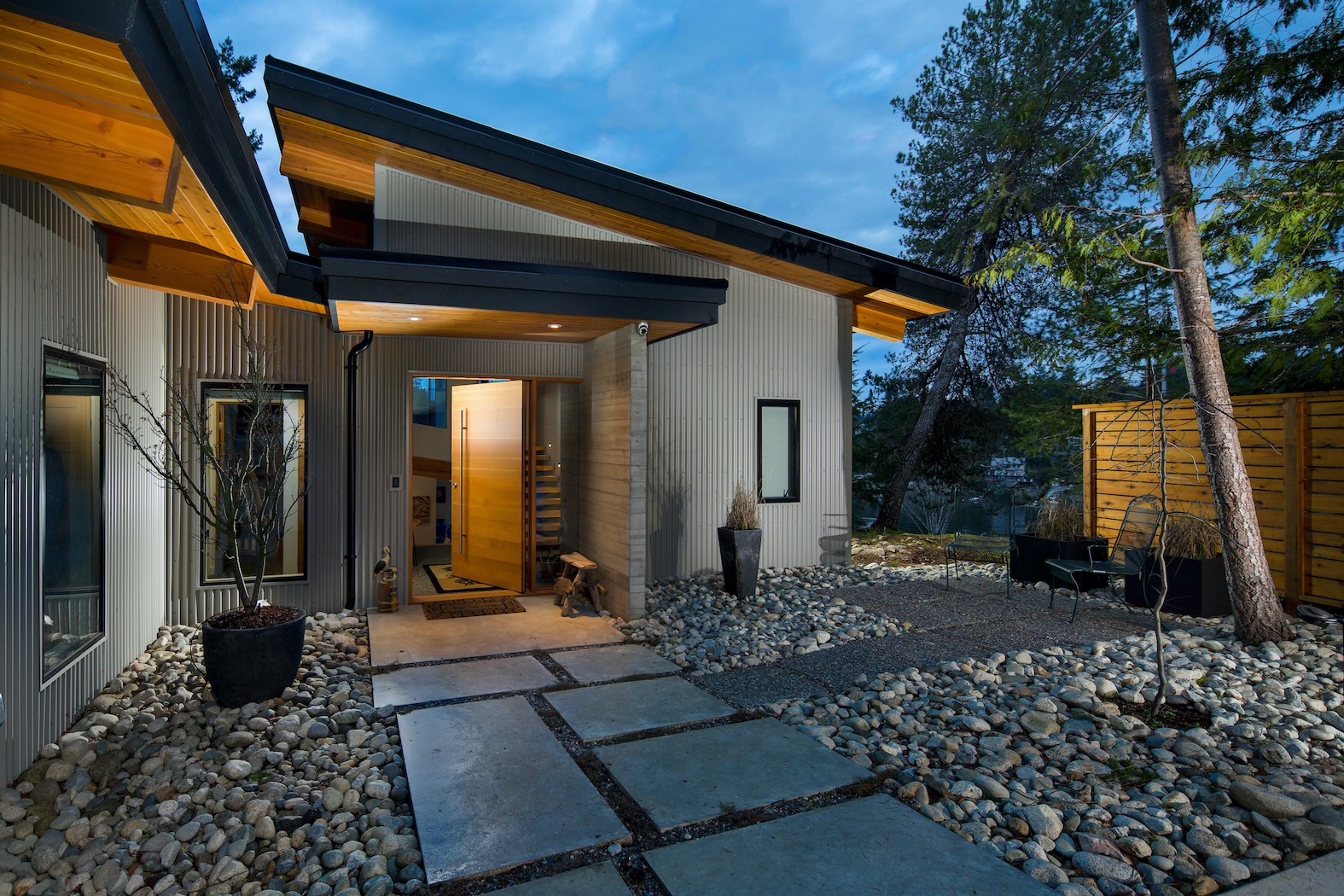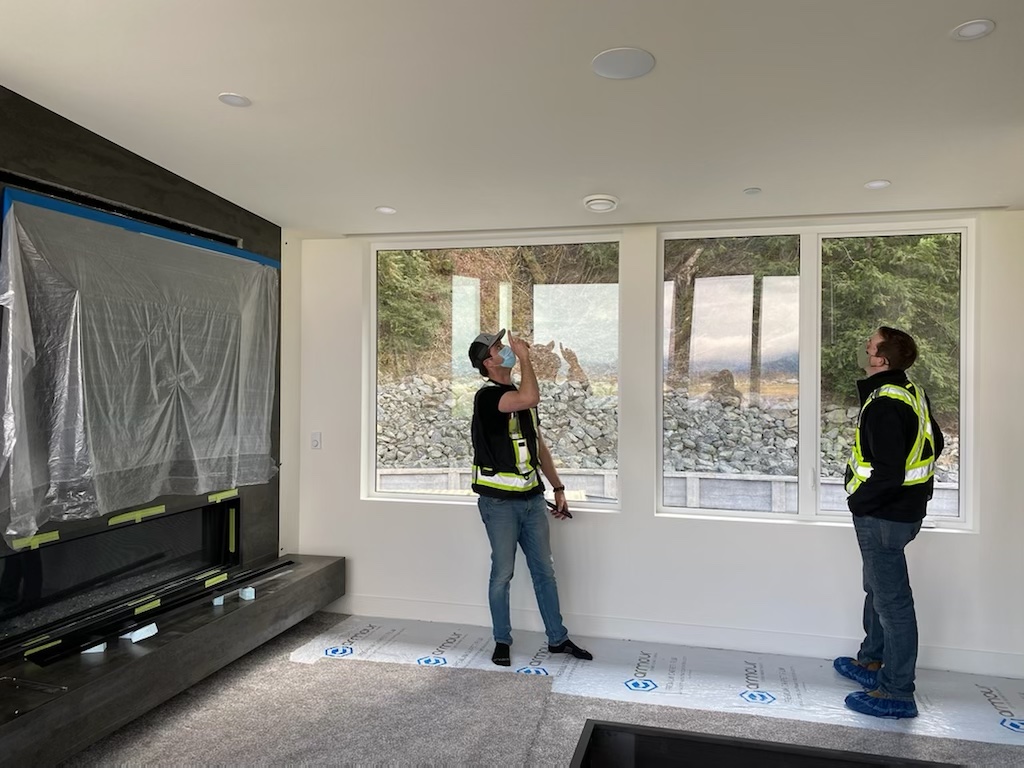Selecting the right custom home builder is one of the most important decisions you will make when building your dream home. Choose well and you will have a true partner and advocate. With the right builder, you will avoid the familiar construction horror stories. Instead, you’ll have a positive experience and end up with a high-quality home for you and your family.
When Should You Choose Your Builder
The best time to choose your builder is either before you begin the design phase with an architect or very soon after engaging an architect. Bringing a builder on board early will ensure that your home’s design and your desired budget stay aligned throughout the process.
A good custom builder will:
- Collaborate closely with an architect.
- Keep the plan development on schedule.
- Provide unique design ideas.
- Produce cost guidance based on the preliminary design.
- Provide valuable construction expertise and insight.
- Offer value-engineering and cost-saving options.
- Suggest high-performance home specs.
- Mitigate potential constructability issues.
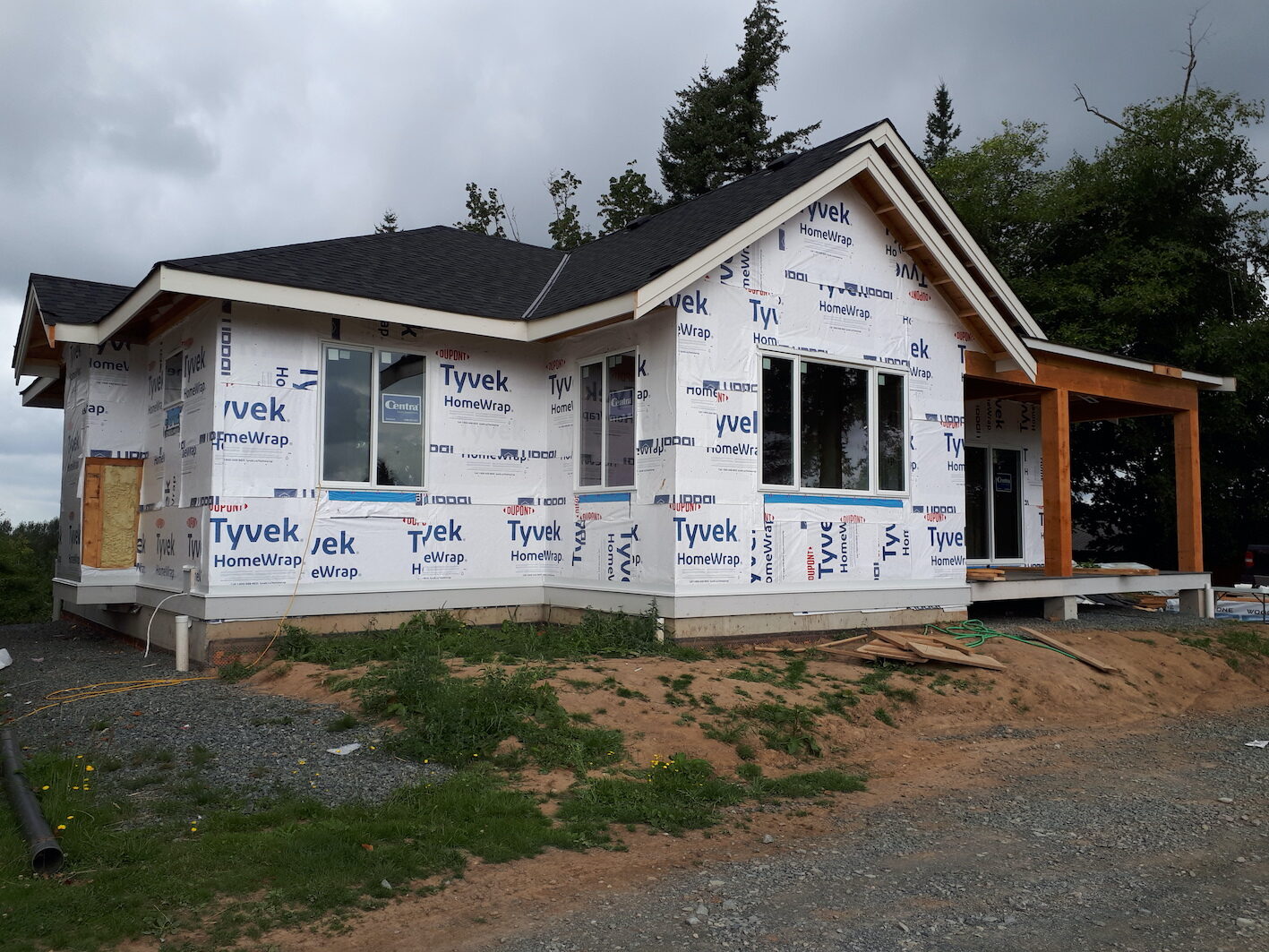
Tips for Hiring the Right Builder
Whether you’re buying a fridge, a car, or hiring a builder, many of us start our research online. Here are a few tips:
- Research to see which builders are working in your area.
- Check their Google rating and read the reviews.
- Check out the builder’s website and social media accounts to view the diversity of their portfolio, projects, and team photos.
- See if you can glean the company’s values, philosophy, communication style, and industry recognition.
When it’s time to reach out, either call the builder’s office or submit a “Contact Us” form on their website. The correspondence that follows will give you an initial idea of the team’s responsiveness, professionalism, and willingness to help.
Interview your top 2-3 choices
This will be the most time-consuming part of this process, and the most crucial. You will want to schedule a face-to-face meeting with each builder. Also, be sure to request to visit a completed home and a current job site with them.
The face-to-face meeting and site tour will give you the chance to assess:
- Organization, effectiveness, and transparency of their systems and processes.
- Strength of their team and relevant experience.
- Communication style and personality of the builder and their team.
- Cleanliness of the job site. A messy, dirty site can be the sign of a disorganized team that doesn’t take pride in its work.
What to Ask A Prospective Builder
To make this process a little easier, we have a list of questions you may want to ask when meeting with your top two to three builders:
1. Can you, the builder, provide architecture and interior design?
The builder you want will have deep connections with architects and interior designers. The builder should be able to match you with the perfect architect and designer and control and coordinate these professionals through planning. Be wary of builders that say come back when you have architectural plans to bid on, or just introduce you to architects but don’t control the rest of the planning process required.
2. Or, how closely will you work with my architect and interior designer if I have already contracted them?
You want a builder who prioritizes a collaborative partnership with your architect and interior designer. This will prevent miscommunication that can lead to unnecessary tension, schedule delays, and extra costs.
Listening to how they approach relationships with your design team will also give you a clue as to how they will approach communication with you.
3. Do you have experience building the style and quality of the home that I want?
This is extremely important, as each style of home presents unique challenges. You want to feel confident that your builder won’t be taking on something entirely new with your project. Instead, you’ll want someone who can apply a vast catalog of knowledge and lessons learned from similar homes they’ve built in the past.
4. Can you tell me a bit about your estimating process? How do you make sure your budgets are accurate?
Listen to ensure the builder’s estimating process is extremely thorough. Their preliminary estimate will be based on historical jobs as well as current market pricing.
Their detailed budget estimate (completed after plans & specs are finalized) will largely be based on hard bids from vendors and subcontractors. You want to make sure that multiple bids will be secured from high-quality subcontractors and that they will be scrutinized to ensure they’re comprehensive.
And most importantly, you should have transparent access and approval rights for those quotes, so you can see builder discounts and more.
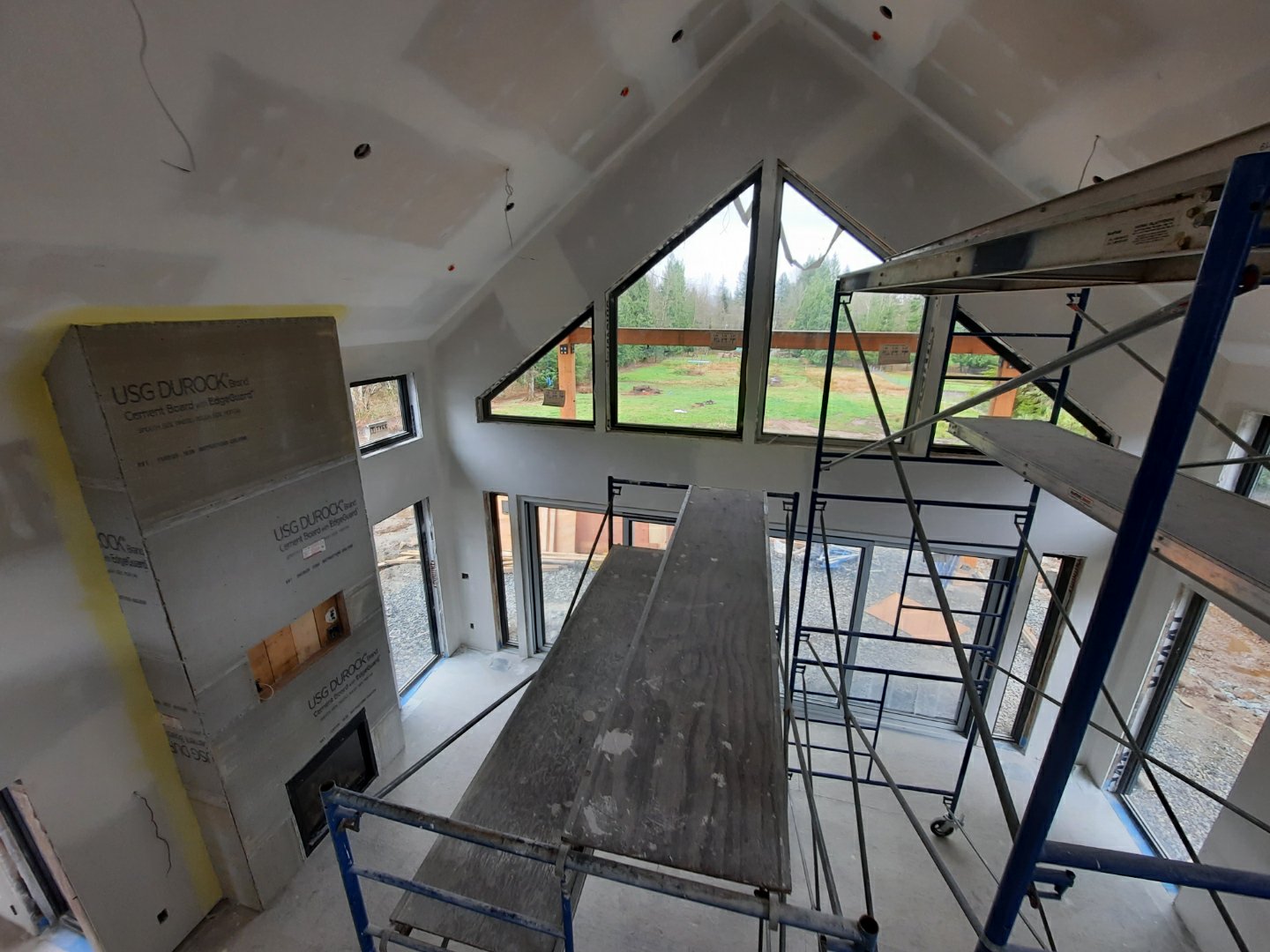
5. Who will be assigned to my project, and how often will my project be under direct supervision?
If you’re early in the design phase, it’s important to look for a builder who will become a part of this process right away.
Additionally, you want someone who can assign a project manager to your project as early as possible.
Questions to ask include:
- What will the project team look like? Do they have a construction manager only? Perhaps a construction manager/ lead carpenter and project manager?
- What kind of in-office support does each project get?
- How busy is your project team? How many projects do they take on?
For complex, high-quality renovations and custom homes, your project should be under direct supervision either daily or every other day.
6. How will questions and concerns be addressed during construction?
You are looking for a “good fit” here. Hiccups are inevitable in construction. You want to ensure that you like the builder’s communication style and that you trust the builder will value your opinions and concerns. Some key things to ask:
- What is their process?
- How do they communicate? Daily, Weekly, Monthly?
- Who is your main point of contact?
Bonus points if the builder tells you their team will establish a regular meeting schedule with you, your design team, and their subcontractors. This shows that they value organization, accountability, communication, and efficiency.
Ask to see an example of their written updates to clients showing details of budgets, schedules, and any issues for discussion.

7. How do you qualify the capability of the subcontractors that will work on my home?
Try to gauge how familiar the builder is with their current sub-trade list. Have they built lasting relationships with the region’s high-quality sub-trade contractors? Do they thoroughly vet any new subs before putting them on one of their projects?
8. In the event there are changes to the design or unforeseen conditions that result in extra costs, what does that process look like?
For high-end custom homes, it is extremely likely that you will encounter a change order due to the complexity of the project. You want to know that they have a system in place for documenting changes, presenting costs and options to you, getting your approval, and efficiently implementing those changes.
9. How long do you anticipate the construction to take? And how do you mitigate challenges to stay on schedule during construction?
This answer will vary depending on the size and complexity of your home’s design. A custom home can take anywhere between eight and 24 months to build.
You’ll want to assess how organized the builder’s systems and processes are; how experienced their team is; how diligent they are about updating the schedule; and how proactive they are at anticipating and solving problems.
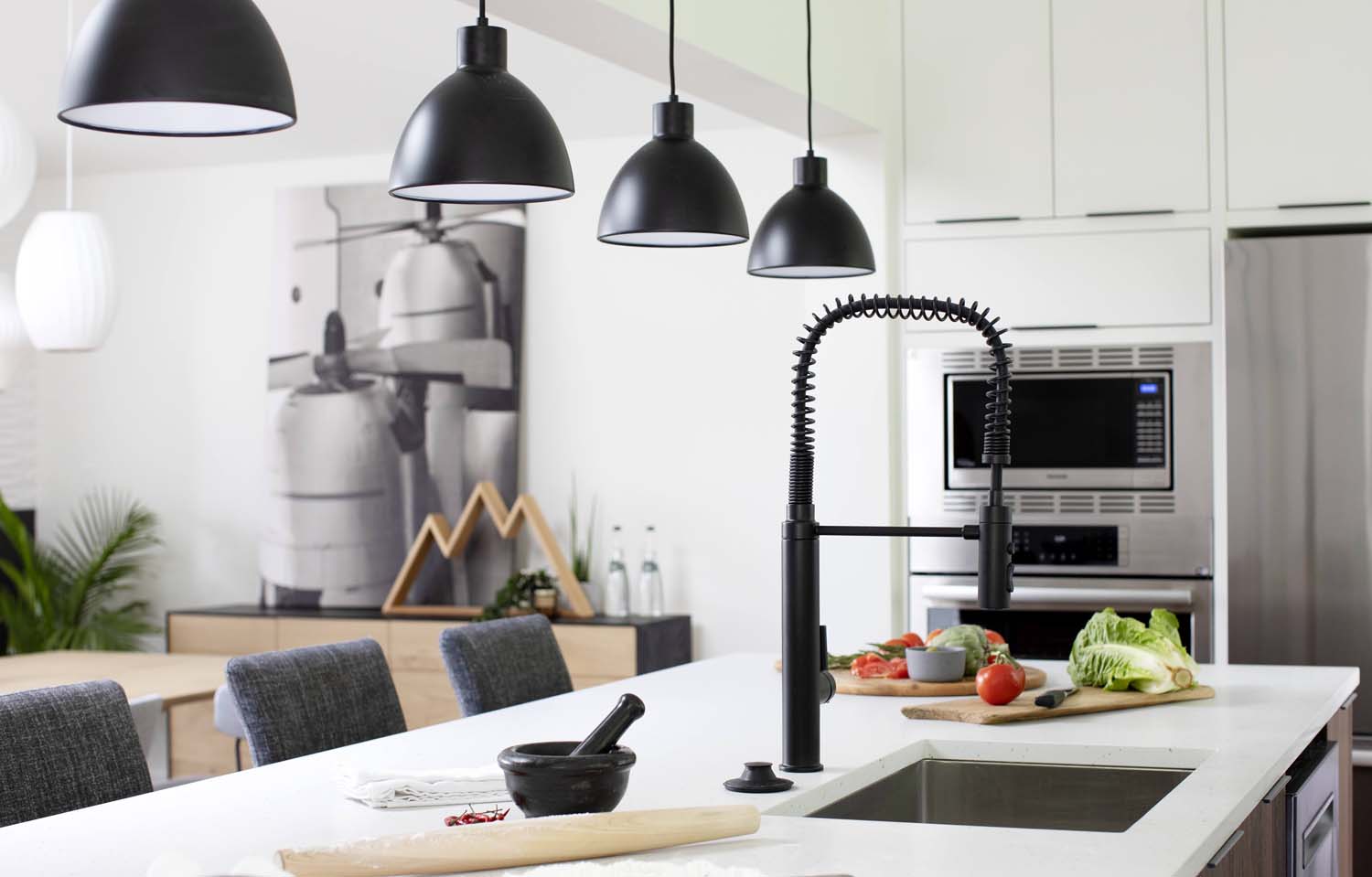
10. How do you service warranty issues after we move in?
The right answer: Quickly and thoroughly with minimal headaches and intrusions for you! Is the warranty written? Does it meet industry best practice of a scheduled follow-up at 3 months, 6 months, one year, and two years after completion?
11. Can you provide me with a sample contract, budget, schedule, and warranty?
Ask them to show you an example of a similar project. The builder should have these resources available at the time of your meeting.
This will give you insight into how they run their organization, their diligence, their process, and the accuracy of their budgets.
12. Can you provide me with a few references, preferably one past client and one current client?
This shouldn’t be a problem for the builder. They may have to contact their homeowners to get permission first, but any other hesitation from the builder may be a red flag.
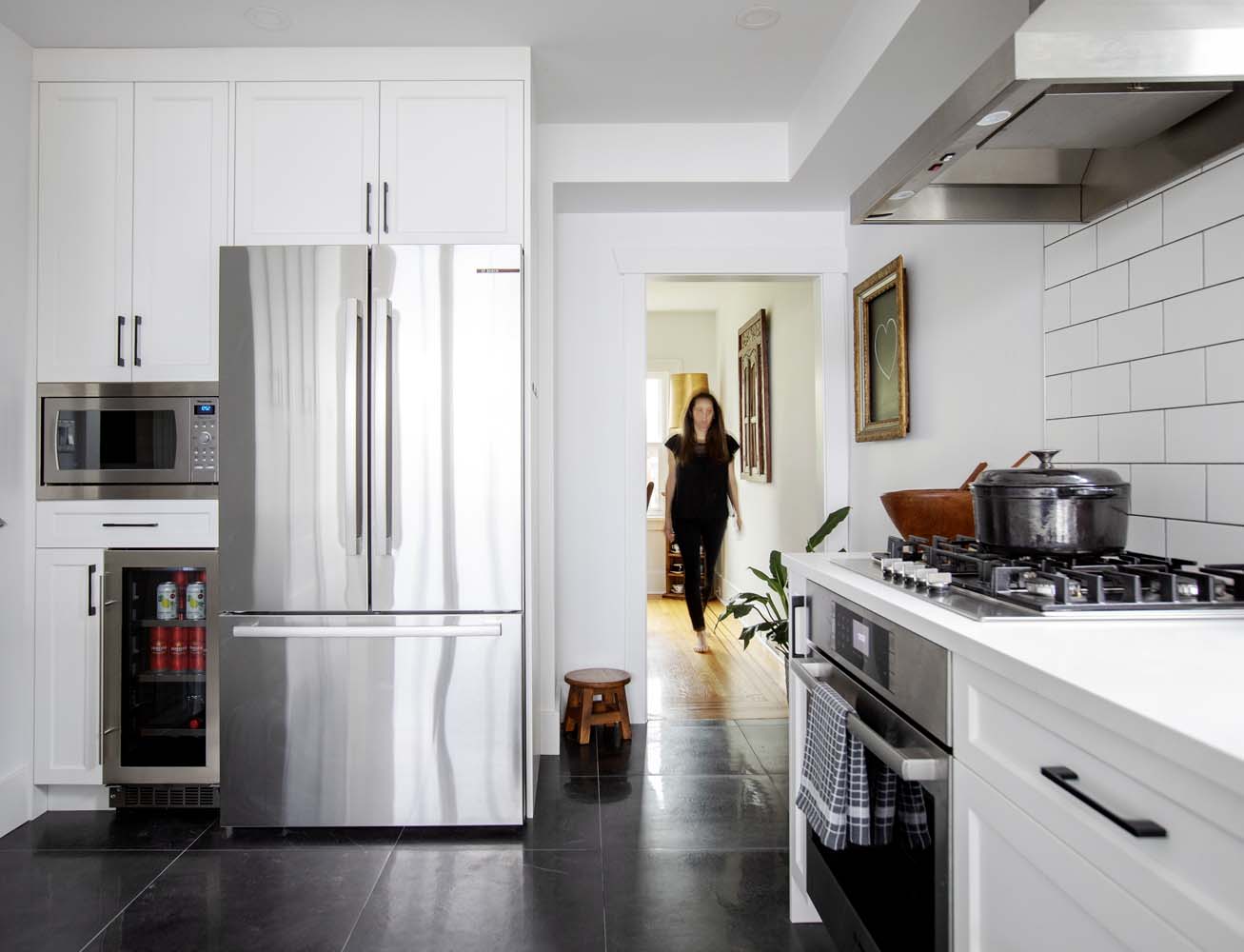
Contact References
Try not to skip this step, no matter how tempted you might be. It’s a given that the references will be clients who had a positive experience with the builder. But these conversations can be helpful in getting a feel for strengths and potential weaknesses.
Questions to ask references:
- Did you enjoy working with this builder?
- What would you say are their strengths?
- Was your project finished on time? If not, what were the reasons for delays?
- Did the builder communicate the schedule clearly?
- Did they ask for decisions in a timely manner?
- Was your original budget estimate thorough?
- Did the project finish on budget? What were the reasons for any overages?
- Were your project’s labour and material quotes clear and transparent?
- How did the builder react in stressful situations?
- What role did the builder take once the project began?
- Who specifically worked on your project?
- Who would you request if you were building again?
- Was the project clean and organized?
- Were there certain subcontractors on your project that you would strongly recommend or avoid?
- How has the builder responded to warranty issues since you moved in?
- If you were building another home, would you choose this builder again?
Yes, it can be a lot of work to find the right builder. But considering that you’ll be living with the consequences of this choice for a long time to come, it’s so important to be thorough. The right choice will mean as smooth a build as possible. Not to mention a beautiful new home for you and your family.
